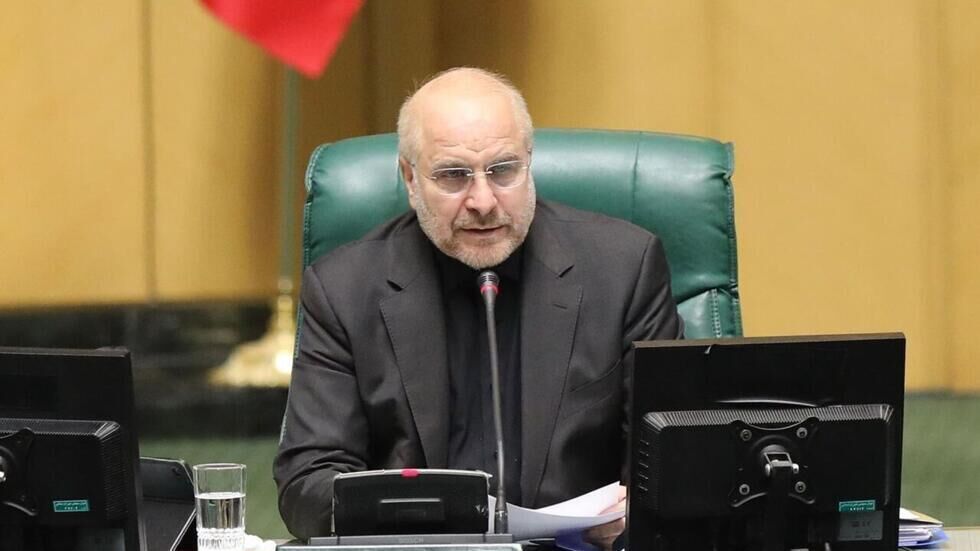Iran’s Parliament Speaker Accuses U.S. of Psychological Warfare, Praises National Unity Amid War Fallout
"Every comment Trump makes is either part of psychological warfare to instill despair and fear in the Iranian people and disrupt the calculations of the country's officials, or it is a meaningless statement made to merely attract attention,” the speaker said.

ERBIL (Kurdistan24) — Iranian Parliament Speaker Mohammad-Baqer Qalibaf accused the United States and its allies of using fake news and psychological warfare to sow division among Iranians, as he addressed lawmakers during a parliamentary session on Sunday, according to Iran’s state-run IRNA news agency.
Qalibaf claimed that recent statements by U.S. President Donald Trump are aimed at intimidating the Iranian people and undermining the unity of the nation.
“Every comment Trump makes is either part of psychological warfare to instill despair and fear in the Iranian people and disrupt the calculations of the country's officials, or it is a meaningless statement made to merely attract attention,” he said.
He also questioned the timing of the U.S.-led attacks on Iran, pointing out that the aggression came just days before scheduled negotiations between Tehran and Washington over Iran’s peaceful nuclear program.
“The question of why the U.S. started the war against Iran amid the negotiations is still unanswered,” Qalibaf remarked.
The speaker warned that Iran’s enemies are “resorting to fake news and disinformation” in an attempt to divide the population, but emphasized that the Iranian people remain united and determined to thwart foreign plots.
“Iranians will always stand against enemies in unison,” he added.
Qalibaf went on to praise what he described as a “historic turnout” during Saturday’s funeral procession in Tehran for 60 of the more than 600 Iranians killed in the 12-day war that erupted on June 13. The conflict began when Israel launched a series of airstrikes on Iranian territory, followed by U.S. participation on June 22, during which American forces bombed three major Iranian nuclear sites: Fordow, Isfahan, and Natanz.
According to Iranian officials, the Iranian Armed Forces retaliated by targeting key sites across "Israeli-occupied territories", inflicting significant damage before a ceasefire was declared on June 24, ending the brief but deadly confrontation.
The war has left a deep impact on the region, and Iranian leadership continues to frame the events as both a military and ideological victory, reinforcing national resilience against what it sees as foreign aggression and interference.
First Vice President Mohammad-Reza Aref also emphasized the unprecedented national unity demonstrated during the recent Israeli aggression, stating that all segments of Iranian society—including opposition groups—stood together in defense of the nation. Speaking during a visit to the headquarters of the Islamic Republic News Agency (IRNA) in Tehran on Sunday, Aref stressed that the "enemies of Iran" had anticipated internal collapse amid the assault, but were met instead with resilience and cohesion.
“Our enemies do not understand that the Iranian people's complaints are internal differences, not opposition to the Islamic system,” he said, adding that the collective stance of the Iranian people, including critics of the government, was the most important outcome of the 12-day war.
He also noted that the policies to preserve national unity, in place since the 1979 Islamic Revolution, must now be revisited to strengthen internal solidarity against future threats. Aref warned that while a ceasefire was declared on June 24, the threat remains, given what he described as the Israeli regime's long record of violating commitments.